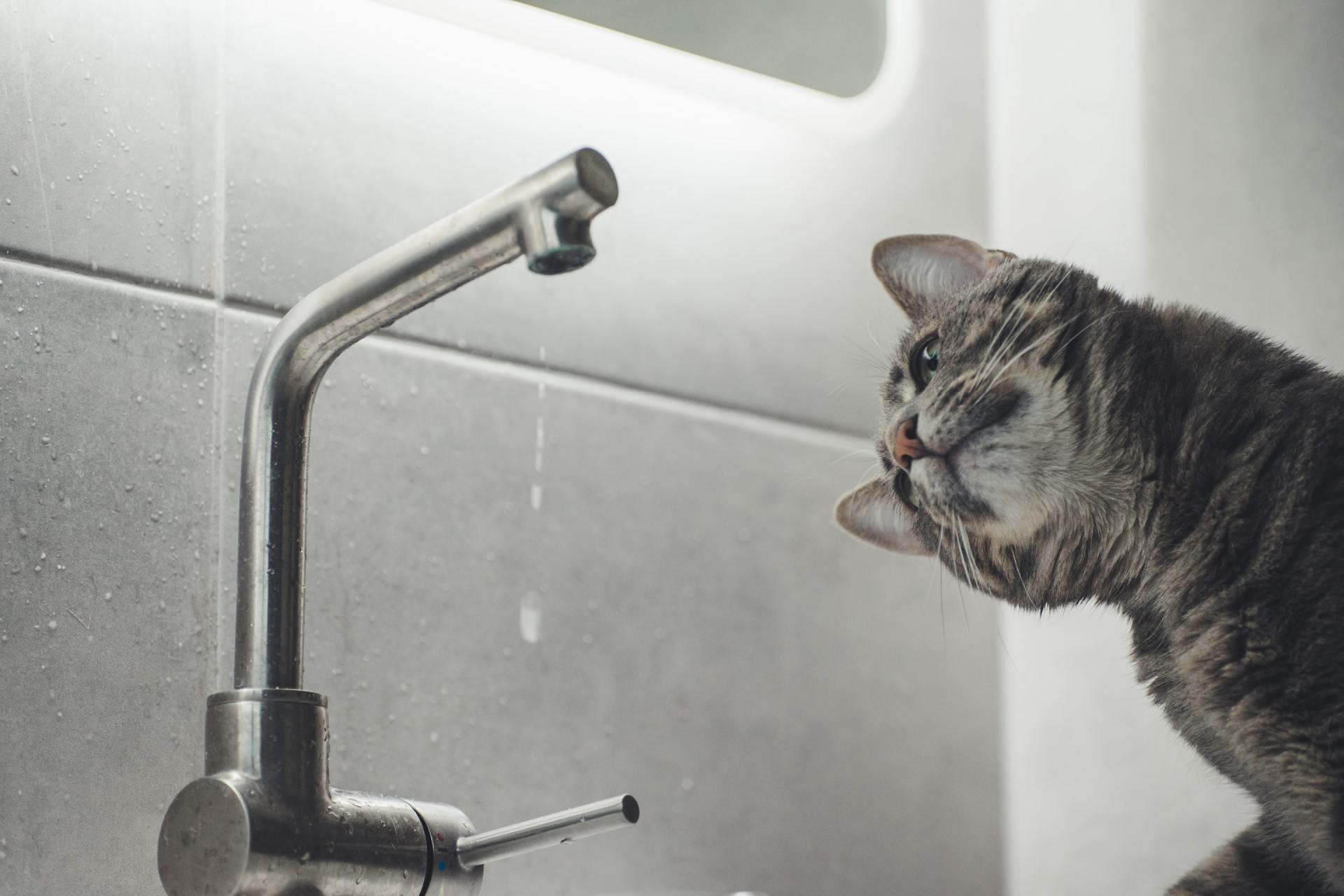Easy Maintenance Fixes
Self-Help for Easy Maintenance Fixes

In Wisconsin, residential tenants are responsible for basic maintenance tasks such as replacing burnt-out bulbs or relighting pilot lights. While replacing a light bulb isn't necessarily an intimidating task, other fixes can be. We here at Wiechmann Enterprises would like to help empower you by offering guidance on how you can take care of minor maintenance issues around your home.
Relighting Pilot Lights
Does your apartment, particularly the kitchen, smell of gas ? Before calling WE Energies/ Alliant Energies, check your gas stove's pilot lights. Your stove may have as few as two pilot lights or as many as six. If one of your pilot lights blew out, it may smell of gas. You are able to simply relight the pilot light.
https://www.youtube.com/watch?v=HQljsiTU4r8
Smoke Detector/ CO Detector Batteries
Is your smoke or CO detector beeping and there doesn't seem to be a reason for it? It is likely that the detector is at the end of its life or that its battery is dying.
Does it sound like this? https://www.youtube.com/watch?v=XRiKZH9XpuM If so, please replace the smoke detector's battery. Your resident manager and/ or maintenance are able to either lend you a ladder to reach the detector or to provide you with a battery.
Is it a beep or a chirp? How frequently? https://www.youtube.com/watch?v=UV1VGlr5KCk If a CO detector's batteries have died or it is at the end of its life, please reach out to maintenance or your resident manager for assistance.
Tub Drains
Is your tub draining slowly ? It is very likely that the drain is simply blocked by stray strands of hair. Most tub drains plugs can be gently unscrewed and you are able to use either your fingers, needle-nose pliers, or a plastic drain snake (check your local hardware or convenience store) to remove the hair. We do not encourage use of Draino or comparable products. After clearing your drain, you should see immediate improvement in how quickly your tub drains. We do strongly encourage you to purchase and use a hair snare to catch any debris before it gets caught in your drain and clogs it again.
Doorbell vs Door Buzzer
A delivery arrives at your door and the messenger pushes the button to signal your apartment. Do you hear the doorbell ring when the messenger pushes that button? If so, your doorbell is working fine. If not, this is indeed a maintenance issue and you should notify your local office so we can correct the matter. Some units have "buzzers" that unlock the security door to grant the messenger access to the building. If you notice the buzzer ( not the doorbell) to buzz people in is not working, you actually may be better off for it. Most insurance providers disapprove of "buzzer" systems as a random person who is not an approved resident may gain access to the property which can pose a hazard to our residents.
Apartment Outlets
Are your plugs falling out of the electrical outlets in your apartment? You are able to simply gently manually spread the prongs on your plug so it stays in the outlet securely!
Mold & Mildew
[paraphrased information from Milwaukee's Health Department] Molds are everywhere and most grow naturally outdoors. Mold spores are present in all indoor environments and cannot be eliminated from them. It is not practical to expect any indoor space to be completely free of mold. Mold growth indoors is typically an indicator of excessive or unmitigated moisture. If you have an active leak or a recurring mold/ mildew issue, please contact maintenance promptly so the matter can be permanently corrected. Mold & mildew growth may also occur if you (or your roommates) take long steamy showers without using ventilation, it is particularly humid outside for an extended period, if you regularly boil large quantities of water, or if you are using a humidifier.
Regardless of the type or quantity of mold, it should be removed and can be removed relatively easily. You should either use bleach mixed with hot water or a surface cleaning product like Clorox Clean-Up to wipe away and kill the mold.
More information can be found here: https://city.milwaukee.gov/health/environmental-health/Mold-and-Your-Health
Flipping Circuit Breakers & Changing Fuses
Did part or all of your apartment lose power ? There are a couple of steps you should take prior to calling your resident manager or maintenance. First , are there any common area lights now off too? Are street lights out as well? Did your neighbors also lose power at the same time as you? If not, you very likely simply overloaded a circuit or a fuse.
<<< Helpful Hint >>> If you've lost power, you needn't immediately worry about any food in your fridge or freezer. If it is sufficiently cold outside (at/ below 37° for fridge, at/ below 0° for freezer), you are indeed able to store your food outside. If it is not sufficiently cold outside, your fridge & freezer will act as coolers and, if you're able to avoid opening them, will keep adequately cool temperatures for as long as 16hrs.
Your second step is to unplug anything which may have caused the circuit/ fuse to be overloaded. The usual culprits are blow dryers, microwaves, toasters, air conditioners, portable space heaters, straighteners/ curling irons, and/ or having too many items plugged into one outlet. You generally should not need to unplug your fridge or television, however, if your more expensive electronics (tv, computer, gaming counsels, etc) do not have surge protectors, you might consider unplugging them to avoid a fry-out.
Next , you should locate your circuit breaker/ fuse box. Usually, these are behind grey metal panels in a front hall closet or in/ near the kitchen. Open up the panel door to view your circuit breakers/ fuses.
Circuit breakers look like sideways light switches. One of these switches will be pointed in a different direction than all the rest; that means that you overloaded that circuit. Sometimes, a switch won't flip all the way over to the other side; in this situation, you can identify the overloaded circuit by pressing each switch in the direction it's facing. If a switch loudly clicks into place, that was the overloaded one; flip that overloaded one to the "off" position (the opposite direction from all the other switches). Ensure that the overloaded circuit is all the way off (it will have made a loud click snapping into place in the off position), then turn it all the way on (again, it will snap into the on position with a loud click). Your power should be restored.
Fuse boxes have several round flat disks facing you, all about the size of a standard light bulb base. One of those disks' faces will be darkened and substantially different from the other disks' faces. The fuse with the darkened disk is the fuse that overloaded. Simply unscrew that fuse just as you would a light bulb. The side of the fuse will be labeled with its type (they're usually color coded blue, green, red, etc). Ideally, there will be spare fuses near the fuse box; simply replace the overloaded fuse with a new fuse of the same type. Alternatively, you are able to pick up spare fuses for a few bucks at your local hardware store or convenience store. Once you screw in the new fuse (again, just like you would screw in a new light bulb), your power should be restored.
Sometimes, there are multiple circuit breakers/ fuses that were overloaded; you may have to check/ replace more than one circuit breaker/ fuse.
If you do not have a circuit breaker/ fuse box in your apartment OR trying the above solutions doesn't resolve the problem, you may need to access the master circuit breaker/ fuse box in the basement/ storage/ boiler room; ask your resident manager for help with this.
Share this post




